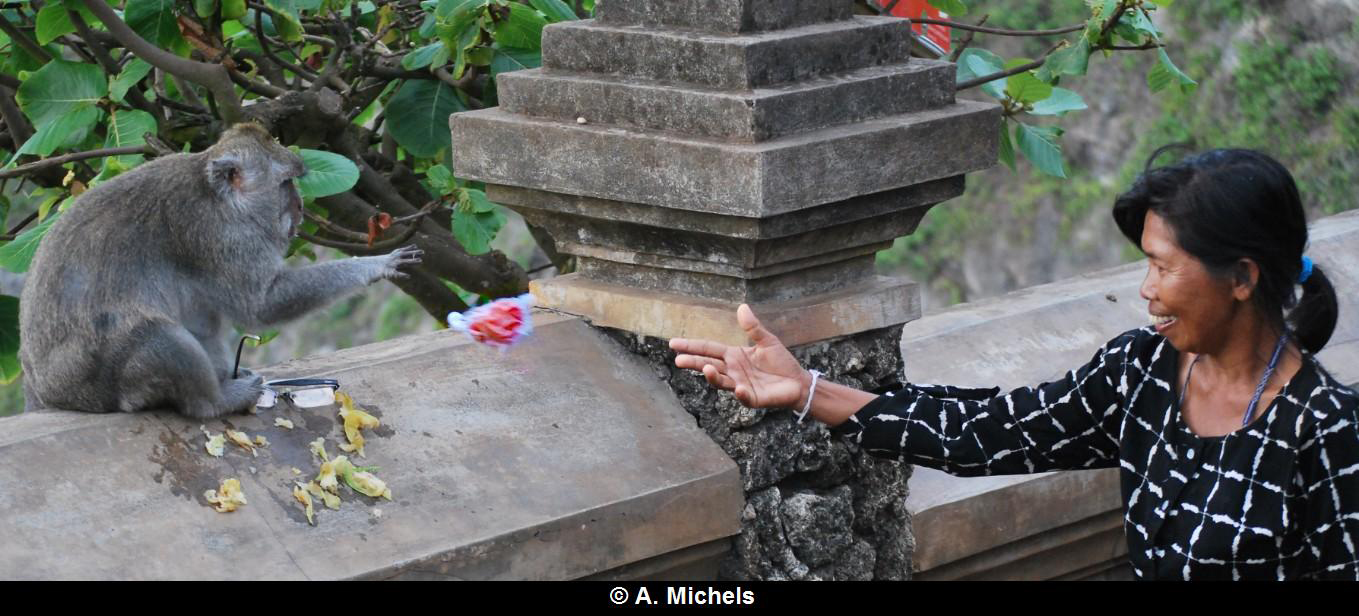You’re not likely to see them flooding casinos any time soon, but the University of Lethbridge’s Dr. Jean-Baptiste Leca and his colleagues are embarking on a study that may turn a population of Balinese long-tailed macaque monkeys into gamblers.

Leca, an associate professor in the U of L’s Department of Psychology, is teaming up with Dr. Rob Williams, a gambling research expert in the Faculty of Health Sciences, and Dr. Elsa Addessi, a cognitive psychologist and primatologist at the National Research Center in Rome, Italy, to explore whether monkeys have cognitive biases and behavioural responses that are different from, or similar to, that of humans when it comes to gambling activities.
“This is a follow-up on our object/food-bartering monkeys project, except that this time we are planning to implement some field experiments to test these monkeys’ abilities to engage in a series of gambling tasks,” says Leca, whose group is supported by a research grant from the Alberta Gambling Research Institute.
In the previous study, Leca made international headlines as he studied open-field macaque monkeys stealing objects from Balinese tourists and using the items as bartering objects for their real desire – food.
“This time around, unlike the bartering process, the gambling scenario will entail some level of uncertainty in the reward they receive,” says Leca, who will travel to Bali in July to begin the work. “Sometimes they won’t get any food reward, or a much smaller amount of food than they expect or are used to. Even after proffering their token to the experimenter, they lose. Other times, they will get more food than they expect, like a big win scenario at the casino.”

The researchers – in collaboration with Dr. Noëlle Gunst (an adjunct faculty and research associate in the U of L’s Department of Psychology), Dr. I Nengah Wandia (a Balinese veterinarian and primatologist from Udayana University), and students Matthew Gardiner, Caleb Bunselmeyer and Christian Dunn – will examine how the monkeys respond when uncertainty is introduced to the already established bartering system; whether they are susceptible, just like some human problem gamblers, to making less than optimal choices; if they tend to undervalue, or discount, larger rewards delivered after a delay and impulsively favour smaller but immediate rewards; and whether they are prone to choosing low-probability/high-payoff rewards over high-probability/low-payoff rewards, even when this strategy works against them in the long run.
Similar studies have been conducted in lab settings but lack an ecological validity because they use captive, lab-trained and socially isolated primates.
“To our knowledge, our study will be the first time minimally invasive experimental gambling research will be conducted on free-ranging nonhuman animals,” says Leca. “What’s more, our monkey subjects have an already established, spontaneously expressed, and culturally transmitted bartering propensity.”
If the group is successful in turning their bartering monkeys into gamblers, and the results are similar to lab research findings, the study will provide further support and validation to existing animal models of gambling and give greater insight to the evolution of irrational human economic behaviours – such as gambling.
